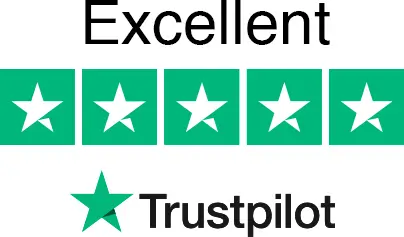Key Takeaways
- Recording conversations in the UK is generally legal if you are a participant, but sharing or using the recording without proper consent can breach privacy and data protection laws.
- In workplace and business settings, strict compliance with UK GDPR and the Data Protection Act 2018 is essential—failure can expose your business to serious risks.
- Clear and informed consent from all parties is usually required for recording meetings or calls involving personal data.
- Making secret or covert recordings without consent brings significant legal exposure, from personal liability to evidence being ruled inadmissible in court.
- Using a robust audio recording consent form helps you demonstrate legal compliance and reduce the risk of disputes or penalties.
- Recordings obtained illegally or without proper data handling may be excluded from evidence in tribunals or civil courts, creating costly setbacks.
- Penalties for unlawful recordings range from fines and reputational harm to dismissal or regulatory enforcement.
- Our platform provides up-to-date consent form templates and expert legal resources to help you record conversations safely and confidently.
- Go-Legal AI is rated Excellent on Trustpilot with over 170 five-star reviews from businesses and professionals that rely on our legal tech solutions.
Is Recording Conversations Legal in the UK? A Complete Guide for Businesses and Professionals
Recording conversations can be a powerful tool for businesses, but the legal landscape is complex. Whether you’re running a company, managing a team, or freelancing, understanding is recording conversations legal in the UK is crucial to protect your operations and reputation. Mistakes can lead to regulatory penalties, loss of critical evidence, or the breakdown of workplace trust.
This in-depth guide explains UK law on recording conversations, when and how consent must be obtained, the impact of UK GDPR, and practical steps to protect your business. You’ll find actionable advice, examples, and essential legal tips—ensuring you stay compliant and avoid costly pitfalls. As a leader in legal technology, Go-Legal AI provides templates, guides, and live legal support so you can record conversations confidently and with clarity.
Is Recording Conversations Legal in the UK?
Recording conversations is generally lawful in England & Wales if you are a party to the conversation and the recording is for personal use only. However, significant legal obligations arise for businesses and professionals, especially when you share the recording, use it commercially, or handle personal data.
Key laws governing the recording of conversations in England & Wales include:
- Human Rights Act 1998: Protects individuals’ right to privacy.
- Data Protection Act 2018 and UK GDPR: Treat audio recordings that identify a person as personal data, triggering strict responsibilities.
- Regulation of Investigatory Powers Act 2000 (RIPA): Prohibits intercepting private communications by third parties unless authorised.
What Are the UK Rules for Recording Conversations?
The legality of recording a conversation in the UK depends on the context—who is recording, their role, the setting, and the purpose. The table below outlines typical scenarios and the associated risks:
| Scenario | Legal Status | Key Risk/Consideration |
|---|---|---|
| Recording your own meeting for personal notes | Usually legal | Don’t share or publish without consent. |
| Secretly recording a meeting you are not in | Generally illegal | Can constitute a criminal offence; privacy breach. |
| Covertly recording a family dispute at home | Uncertain | Sharing may breach privacy. |
| Recording work calls with disclosed consent | Legal | Storage and data handling must comply with UK GDPR. |
| Recording a workplace disciplinary hearing secretly | Often illegal | Admissibility in court or tribunal doubtful; trust breach. |
Can I Record Conversations at Work or in Business Meetings?
Recording in business or workplace environments demands rigorous compliance. Both employers and employees must consider their organisation’s policy, privacy laws, and data protection obligations. In a professional context, you must:
- Obtain explicit (preferably written) consent from all participants.
- Ensure the purpose for the recording is lawful and transparent (e.g., training, business records).
- Align your process with the company’s employee handbook or recording policy.
Potential risks of not complying with workplace recording rules:
- Disciplinary action, dismissal, or staff grievances.
- ICO fines or regulatory investigations for data breaches.
- Inadmissible evidence in legal or employment proceedings.
When Do You Need Consent to Record a Conversation in the UK?
Consent is a fundamental principle under UK law when recording conversations—especially where personal data is captured or the recording may be used beyond private reference. Under the Data Protection Act 2018 and UK GDPR, consent must be:
- Freely given, specific, informed, and unambiguous.
- Ideally documented in writing or an electronic form.
- Verifiable and retained for evidence if challenged.
How to secure valid consent:
- State the purpose of recording: Explain clearly why you’re recording (e.g., to take accurate notes).
- Obtain agreement before recording begins: Verbal consent at the start, or use a signed form.
- Record proof of consent: Store consent emails, signed forms, or a section of the audio file.
What Is the Difference Between Personal and Workplace Recordings?
Personal recordings (private conversations with friends or family) have more leeway under UK law, provided you do not share or misuse the recording in a way that violates someone’s privacy or causes harm.
Workplace or business recordings are subject to greater scrutiny:
- All participants must provide explicit consent.
- Processing must comply with UK GDPR.
- Purpose, retention period, and usage must be documented and justified.
GDPR and the Data Protection Act: How Do They Apply to Audio Recordings?
Any audio recording that contains voices, names, or other identifying information constitutes personal data under the Data Protection Act 2018 and UK GDPR. This means businesses must follow strict requirements.
Key compliance duties with audio recordings:
- Notify affected individuals in advance about the recording and its purposes.
- Obtain and record explicit consent—particularly for anything beyond private notes.
- Implement strong storage and access controls: Use encryption, restrict access, and set clear retention policies.
- Facilitate data subjects’ rights: Be prepared to provide access, rectify, or delete recordings upon request.
What Counts as a Covert or Illegal Recording in the UK?
A covert recording is made without all parties knowing and consenting. Such recording often breaches the Regulation of Investigatory Powers Act 2000, especially where you are not a party to the conversation or record with malicious intent.
If you record someone secretly—particularly in an employment, business, or public setting—you expose yourself or your business to criminal penalties, claims for breach of privacy, and lost credibility.
Recording Phone Calls in the UK: Rules and Best Practices
Phone call recordings are governed by both communications regulations (OFCOM) and data protection law. The rules differ depending on the context.
- For personal calls you are part of: Recording is usually lawful if only for your own reference, but must not be shared without consent.
- For business calls: You must notify all participants at the start and ensure their consent is documented.
Best practices for recording phone calls:
- Use standard notification scripts: “This call is being recorded for training and compliance purposes—do you consent?”
- Document every consent—written or electronically captured consent is ideal.
- Store recordings securely and restrict access to authorised personnel only.
Are Recorded Conversations Admissible as Evidence in Court or Employment Tribunals?
Whether you can use a recording as evidence in England & Wales depends on how you made and handled the recording.
Courts and tribunals may accept recordings when:
- Consent was properly obtained.
- The recording is authentic and untampered.
- Its use complies with data protection and employment law.
Recordings made secretly or without valid consent are often excluded, and using them risks additional claims for breach of privacy.
How to Record Conversations Legally in the UK: 7-Step Checklist
To record conversations lawfully and protect your business from legal challenges:
- Assess necessity: Record only if it serves a valid business purpose.
- Check all applicable laws and company policies: Some industries (e.g. finance, healthcare) may have stricter obligations.
- Notify everyone clearly: Use written or verbal notice before starting.
- Secure explicit, informed consent: Ideally via a signed or digital form.
- Retain proof of consent: Use email logs, forms, or record consent at the beginning of the audio.
- Implement robust data security: Use encrypted storage, access controls, and regular audits.
- Review compliance regularly: Update processes and policies in line with legal developments.
⚡ Get legal tasks done quickly
Create documents, follow step-by-step guides, and get instant support — all in one simple platform.
🧠 AI legal copilot
📄 5000+ templates
🔒 GDPR-compliant & secure
🏅 Backed by Innovate UK & Oxford
Audio Recording Consent Form UK: Checklist & Template Essentials
A tailored audio recording consent form is your single best proof that you met UK legal requirements. Your form should include:
| Clause | What It Means | Why It Matters |
|---|---|---|
| Parties Involved | List names of all people whose voices may be recorded. | Ensures valid, specific consent. |
| Purpose | Clearly state why the recording is needed. | Transparency on use builds trust and defends claims. |
| Consent Statement | Capture agreement in unambiguous language. | Demonstrates legal compliance. |
| Storage & Security | Explain where and how files are stored/accessed. | GDPR requires data security and access controls. |
| Information on Rights | Tell individuals how to access, object, or withdraw. | Meets data subject rights under UK GDPR. |
Common Mistakes and Risks When Recording Conversations in the UK
Legal pitfalls are more common than most businesses realise:
- Not informing participants: Failing to disclose recording intentions before or during the conversation is a direct breach of privacy law.
- Unclear policy or employee handbook: If workplace policies overlook recording, you risk inconsistent practices and legal exposure.
- Poor security: Storing unencrypted recordings on personal devices allows unauthorised access and breaches.
- No clear business purpose: If the reason for recording isn’t documented, it’s harder to justify compliance with UK GDPR.
What Are the Penalties for Illegal or Covert Recordings in the UK?
Consequences for unlawful or covert audio recordings can be severe:
- Internal sanctions: Staff may face discipline or dismissal for breaching trust or policy.
- Tribunal setbacks: Inadmissible evidence or legal claims for breach of privacy.
- Regulatory fines: The Information Commissioner’s Office (ICO) may impose significant penalties for GDPR/data protection failures.
- Possible prosecution: Covertly intercepting communications may lead to criminal proceedings under RIPA.
To protect your business:
- Regularly audit and update your policies on recording and privacy.
- Train all staff and management in their legal duties.
- Use our instant AI-powered consent form and policy builders to maintain compliant, up-to-date documentation.
How Go-Legal AI Makes Legal Recording Effortless
With our platform, you can:
- Instantly create tailored, lawyer-approved consent forms for audio recordings.
- Access a full library of GDPR-compliant privacy templates and recording policies.
- Check your processes using our AI-powered legal compliance tools.
- Get step-by-step guidance on handling disputes, evidence, or complex regulatory requirements.
Everything you need is in one secure platform—making compliance fast, affordable, and straightforward.
Frequently Asked Questions
Does UK GDPR apply to all phone or audio recordings?
Yes—if your recording contains any information that can identify an individual, UK GDPR applies. Businesses must justify the purpose, secure consent, and handle all audio files per GDPR standards. Our templates and guides help you stay compliant.
How can I prove I received consent to record?
Keep a signed or digital consent form, a recorded verbal agreement, or an email from every participant. Store these securely alongside the file. Our consent form builder records and stores evidence of consent so you’re prepared if questioned.
Are hidden recordings allowed in workplace disputes?
Only in extremely rare, exceptional circumstances. Secret recordings, especially by employers, will almost always breach trust and may be excluded as evidence in employment tribunals. Employees should only consider them as a last resort and at their own risk.
Can I record meetings or calls without telling others?
No. UK privacy and employment laws require you to inform every participant and get their explicit agreement. Failing to do so is likely grounds for disciplinary and legal action.
Is it lawful to record Zoom, Teams, or online calls?
Yes—but only after you’ve notified and secured the consent of *every* participant before the call begins. Relying solely on a platform’s built-in notification may not be enough.
What rights do employees have if they discover they were recorded without consent?
They can file a grievance, object to processing, or claim for breach of privacy or unlawful data processing. Employers risk claims, ICO investigations, and loss of workforce trust.
Is it OK to store voice recordings outside the UK?
Only if your data storage crosses to countries with adequate data protection standards per UK adequacy decisions. Always inform data subjects and update your privacy policy. Our documentation builder supports these clauses.
What needs to go in a business call recording privacy policy?
Define which conversations may be recorded, who is notified, storage processes, retention, and data subject rights. Use our ready-made privacy templates to ensure you cover every legal requirement.
Who regulates call recording in the UK?
The ICO (Information Commissioner’s Office) oversees data protection compliance, while OFCOM regulates telecom operators and their practices.
How long can I keep audio recordings for my business?
Hold recordings only as long as necessary for their stated purpose—usually this is a few months to a year. Regular audits help you stay compliant and avoid unnecessary legal risks.
Record Conversations Legally and Protect Your Business With Go-Legal AI
Complying with UK law when recording conversations is essential to safeguard your business, reputation, and relationships. Ignoring the rules or using generic, outdated forms can lead to investigations, fines, or even the loss of crucial evidence. Every professional and business should prioritise clear consent, proper documentation, and reliable security practices.
With Go-Legal AI, you have instant access to ready-to-use, lawyer-drafted templates, cutting-edge AI review tools, and expert step-by-step guidance—all in one reliable platform. Eliminate the uncertainty and avoid costly mistakes. Start today and get the confidence that your recordings are lawful, secure, and GDPR-compliant—no jargon, no hassle.
⚡ Get legal tasks done quickly
Create documents, follow step-by-step guides, and get instant support — all in one simple platform.
🧠 AI legal copilot
📄 5000+ templates
🔒 GDPR-compliant & secure
🏅 Backed by Innovate UK & Oxford










































